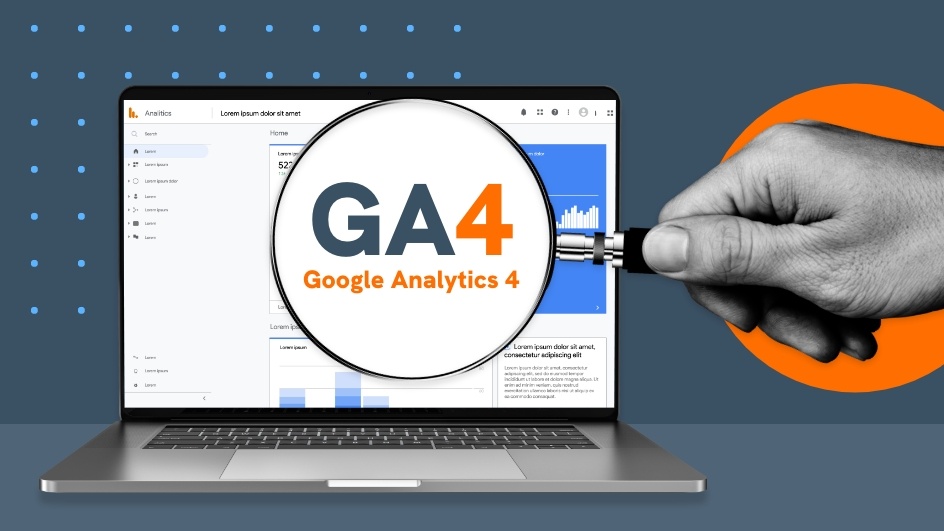Can you believe that it has almost been a year since the marketing world was turned upside down and we were first introduced to Google Analytics 4 (GA4)? On July 1st, we will have our first twelve months of historical data in GA4. This means we won’t have to jump between Universal Analytics (UA) and GA4 to get a single year’s set of data (unless you’re in need of data pre-July of 2023).
So, what have we learned from Analytics’ change? Let’s take a look at some areas and metrics marketers had to adjust in their data analysis during the switch.
Hit Types vs. Events
In UA, we were used to “hit types,” which included page view, event, social, transaction, user timing, exception and app/screen view. GA4 took a different approach and combined all of those hits and made them “events.”
Along with these “events,” UA’s original “events” required specific components to collect data, which included a Category, Action, Label and hit type. GA4 doesn’t use hit types and does not display those additional components.
Pageviews & Screenviews
One thing that stayed fairly similar between the change was how the pageviews were collected. Screenviews in GA4, on the other hand, is an event triggered when a user views a screen.
Keep in mind, the totals here can vary depending on the filter options you may have had set up in UA compared to GA4.
Sessions
This is another instance where the two largely differ. A session in UA comprised of various items, including: events, social interactions, multiple page views and e-commerce transactions. They also ended when 30 minutes had passed of no activity.
In GA4, sessions are counted with the “session_start” event and conclude when a new session starts.
Custom Dimensions & Metrics
In terms of customization, UA allowed you to collect and analyze specific data that wasn’t automatically tracked (based on their scope). So in the case of what they were determined as in UA and what they are now in GA4:
- Hit-scoped > Event scoped custom dimension
- User-scoped > User scoped custom dimension
- Session-scoped > No GA4 property equivalent
- Product-scoped > E-commerce parameters
GA4 properties also create limitations for events, their parameters and user properties.
Content Grouping
For collections of content, UA allowed you to create a logical structure for your content, providing a more direct look at metrics for that specific content. GA4, on the other hand, has one event parameter for a content group that populates the specific data into that dimension.
IDs (User & Client)
The User ID doesn’t change between the two in regards to data collection. GA4 enhanced this offering by presenting cross-platform and cross-device views of how users interact on a single user journey.
When it comes to Client ID, both Analytics provide a pseudonymous user identifier.
GA4 Additions: Parameters & User Property
For events, GA4 has an additional data collection aspect that allows you to look into specific actions a user has taken – this is a parameter. You can get more context on a purchase, gaming details, article author, etc. to help you better understand the user journey.
The same goes for the user properties. Although some user dimensions are already logged, you can add more attributes to get a closer look at who is visiting your site.
Data Collection Settings
When we migrated from UA to GA4, we were able to keep cookie customizations and ad personalization. For GA4, the following were not migrated or didn't have an equivalent option available:
- Control over IP masking - IP masking is enabled by default on GA4
- Custom task (analytics.js only) - not available
- Timing - not available
Turn to the Data Analysis Experts
In the ever-evolving landscape of digital marketing, data is key. With native GA4 year comparison data, businesses get insights into their long-term performance, can identify growth opportunities and make informed decisions for the future.
At TKG, we're passionate about helping businesses harness the power of data-driven marketing strategies. Whether you're looking to optimize your online presence, drive traffic to your website or improve conversion rates, we're here to help you achieve your business goals. Contact us today to get started.



